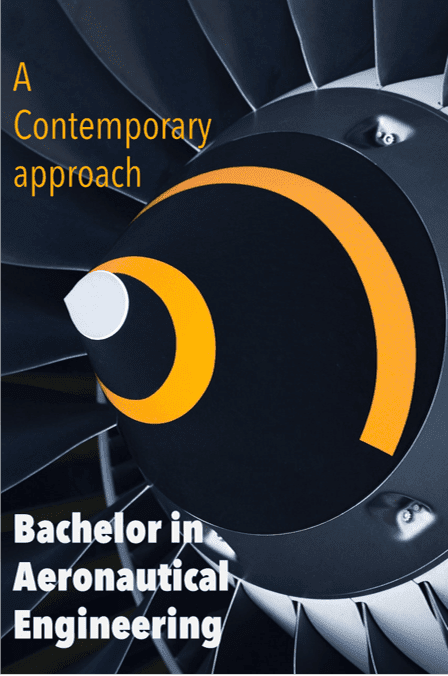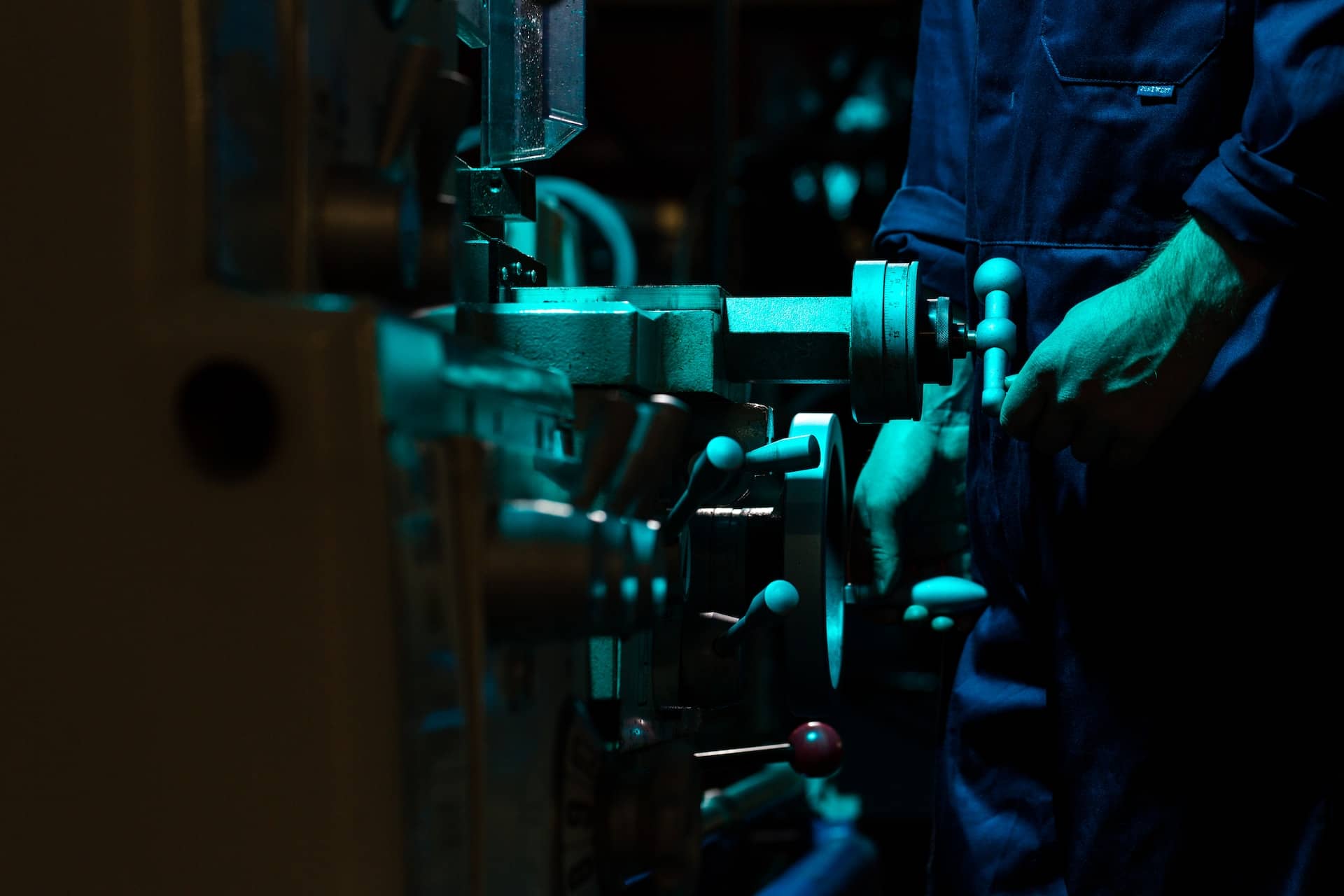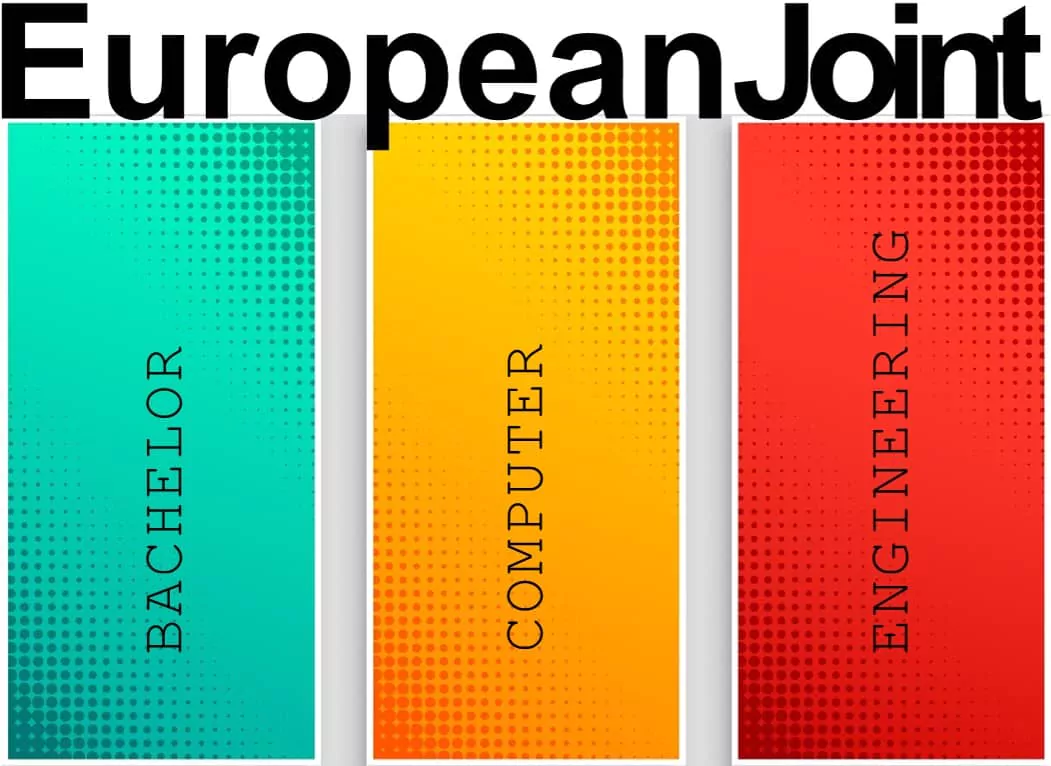Bachelor in Aeronautical Engineering
Advanced concepts and applied principles.
BACHELOR DEGREE

“ Upcoming Edition ”
OCT 2025 | FEB 2026
Call for applications Open
Duration 3 years, full-time
Language English
Format On campus
Place Lisbon

The balance between practical and theoretical work is what I enjoy most about my aeronautical engineering courses. It is set out very well, so that you get all the theoretical knowledge needed to develop further in the field. You also get to apply that knowledge in a practical sense to gain an appreciation of how it directly impacts engineering decisions.
Why this program?

Professional recognition
The Bachelor in Aeronautical Engineering is fully accredited to Incorporated Engineer status by the Portuguese Engineers Association. This means that the program provides students with the underpinning knowledge, understanding and skills to support their application for eventual professional registration to receive Chartered Engineer status. Our graduates are also recognized internationally through international protocols in the following regions:
AFRICA | Angola; Capo Verde; Mozambique; São Tomé and Principe
AMERICA | USA; Brazil; Colombia; Costa Rica; Cuba; Honduras; Mexico; Peru
ASIA | China
EUROPE | EU Members
MIDDLE EAST | Qatar
Aeronautical engineering is a major growth industry. It is about how aircraft are designed, constructed and powered, how they are used and how they are controlled for safe operation.
Our Aeronautical Engineering degree program adheres to global quality standards and encompasses the four fundamental domains of aerospace vehicle design: aerodynamics, structures, propulsion, flight stability, and control. This comprehensive program harmoniously integrates theoretical knowledge, practical experimentation, and simulation applications, while offering you the opportunity to specialize in cutting-edge subjects crucial to the future of aviation, extending beyond conventional passenger transport aircraft. There are many exciting challenges facing the sector, from finding environmentally sustainable methods of propulsion, to increasing automation, that allows unmanned aircraft to complete an ever-increasing range of tasks. This program will prepare you for a career tackling these challenges facing aviation today, and well into the future.
On this program, you can study topics such as computational modelling materials for aerospace, aerodynamics, aircraft propulsion, aeronautical design, control, experimental and computational fluid dynamics, among many others. These are underpinned by learning the fundamentals of engineering and analysis techniques, equipping you for a career not only in the aeronautical and automotive sectors, but many others too.
We consult closely with industry professionals so you can expect a course that’s highly relevant and equips you with sought-after skills. We offer small classes and one-on-one mentoring opportunities you may not find in a larger university.
With The Bachelor in Aeronautical Engineering I will learn to analyze and understand aircraft behavior and performance, as well as propulsion systems, while performing complex examinations of aircraft structural components. / I will learn how to design, test and operate complex aerospace and related systems. / I will gain ability to identify, formulate, and solve complex engineering problems by applying principles of engineering, science, and mathematics. / I will experience what it’s like to work as part of a professional team, creating a collaborative and inclusive environment, establishing goals, planning tasks, and meeting objectives, and finding solutions to complex problems via group projects. / I will benefit from specialist facilities including extensive lab space and equipment such as wind tunnels, our high-spec computer cluster for Computer-Aided Design (CAD) work and computational modelling, in aerodynamic analysis for example, and workshop facilities for various rapid prototyping systems. / I will be based in the fluid mechanics and aerodynamics laboratories that keep teaching and learning apace with cutting-edge innovation. / I will Access industry-standard software packages used in aeronautical engineering courses, applications and research, such as MATLAB, ANSYS and OpenFOAM, which will give me the ability to work confidently in industry. / I will gain capabilities such as problem solving, critical self-reflection , entrepreneurship, and other industry related skills.
Dual degree
With one year’s extension, a single bachelor of engineering program that grants you two qualifications*, which are highly valued by recruiting companies when the time comes to enter the labor market.
Qualification 1 Airline Transport Pilot License for Aeroplanes | ATPL-A
Qualification 2 Flight Operations Officer


Learning by design
| Every academic program has been designed to provide clear and ambitious learning outcomes. These learning outcomes give you an understanding of what you will be able to do at the end of the course. We develop each academic program by designing modules that grow your abilities towards the learning outcomes and help you to explain what you can offer to employers. Find out more about our approach to teaching and learning.
Students who complete this degree will be able to:
- Improve flight safety, fuel efficiency, operational systems, and the environmental impact of air travel.
- Design and develop products in fields such as formula and endurance racing, or the automotive industry.
- Take their skills into the defense industry, specializing in military aircraft, rockets, satellites, and helicopters.
- Design, build and test new designs for small unmanned aerial vehicles (drones).
- Work effectively in multinational / multidisciplinary teams.
- Solve operational problems, including maintenance and certification.
- Work at all levels on mechanical, electromechanical and electro-avionic systems.
- Engage in research and development (R&D) studies in aerospace engineering.
- Choose and apply advanced analytical, experimental and computational methods to analyze complex systems.
- Approach specific situations with creativity, analyze them critically and with rigor, and communicate ideas with clarity and persuasiveness.
- Develop economically viable, ethically sound and sustainable solutions.
Who is it for?
Fuse your creative and technological interests in a program designed to prepare graduates for this exciting emerging.
This Bachelor is for your if…
- You are interested in exploring how advanced technology is revolutionizing flight.
- You are excited about aerospace and aviation and desire a future engineering career in this field.
- You are a keen problem-solver who enjoyed mathematics or physics at school/college.
Program
Overview
| Simulation of business reality. In addition to the permanent contact with the work place, our students develop skills in simulated environments, at different levels of complexity and accuracy, aiming at a better match with the real world through different methodologies, such as simulation, challenge learning, and problem-based learning.
Semester 1
- Calculus I
- Technical Drawing and Geometric Modeling
- Applied Programming
- Linear Algebra
- Introduction to Aeronautical Engineering
Semester 2
- Calculus II
- Mechanics and Waves
- General Chemistry
- Material Science and Technology
- Probability and Statistics for Engineering
Semester 3
- Calculus III
- Applied Mechanics
- Electromagnetism and Optics
- Electronics Circuits Analysis
- Metallic Materials for Aerospace
Semester 4
- Mechanics of Materials
- Electro-mechanics and Avionics
- Thermodynamics and Transport Phenomena
- Fluid Mechanics
- Aircraft Performance
Semester 5
- Aerodynamics
- Aeronautical Structures
- Computational Modeling of Materials
- Aircraft Propulsion
- Production Process
Semester 6
- Strategic and Operational Management
- Flight Operations Support
- Composite Materials
- Final Year Aeronautical Project
-
Overview
| Simulation of business reality. In addition to the permanent contact with the work place, our students develop skills in simulated environments, at different levels of complexity and accuracy, aiming at a better match with the real world through different methodologies, such as simulation, challenge learning, and problem-based learning.
- 1
-
Semester 1
- Calculus I
- Technical Drawing and Geometric Modeling
- Applied Programming
- Linear Algebra
- Introduction to Aeronautical Engineering
- 2
-
Semester 2
- Calculus II
- Mechanics and Waves
- General Chemistry
- Material Science and Technology
- Probability and Statistics for Engineering
- 3
-
Semester 3
- Calculus III
- Applied Mechanics
- Electromagnetism and Optics
- Electronics Circuits Analysis
- Metallic Materials for Aerospace
- 4
-
Semester 4
- Mechanics of Materials
- Electro-mechanics and Avionics
- Thermodynamics and Transport Phenomena
- Fluid Mechanics
- Aircraft Performance
- 5
-
Semester 5
- Aerodynamics
- Aeronautical Structures
- Computational Modeling of Materials
- Aircraft Propulsion
- Production Process
- 6
-
Semester 6
- Strategic and Operational Management
- Flight Operations Support
- Composite Materials
- Final Year Aeronautical Project

Employability
With high* employability rate the most influential companies recruit from the graduates of ATLANTICA, among the best aeronautical engineering universities in Portugal.
* The course started in 2021. It is still early to get employment rate data.

Career outcomes
WHERE WILL AN AERONAUTICAL ENGINEERING DEGREE FROM ATLANTICA TAKE ME?
Lead engineer | Structural engineer | Flight test engineer | Aerospace stress engineer | Maintenance engineer | Aeronautical engineer | Aircraft design engineer | Material and process engineer | Project engineer | Quality engineer | Design liaison engineer | Development engineer | Camo engineer | Service engineer

Growth
The Global Aerospace Engineering services Market size is expected to be worth around USD 662.4 Billion by 2033, from USD 330.5 Billion in 2023, growing at a CAGR of 7.2% during the forecast period from 2024 to 2033, hence creating new employment opportunities for aerospace/aeronautical engineers in the United States, Europe, and Asia with an average growth rate of 6% until 2033, i.e. about 3,800 openings for aerospace engineers are projected each year in the USA, and 4,200 in Europe.
Ready to start
your journey?
This call for applications for Bachelor’s degree, under the International Student statute, is addressed to students who are not Portuguese nationals and are not nationals of an EU Member State.
If you have completed your secondary education and have a diploma of entry to university studies in your country, you can apply.
If you have the equivalent of high school and your grades will be published in July 2024, you can apply.
We welcome applicants without traditional entry qualifications as we base decisions on our own assessment of qualifications. The application process is restricted by vacancies and the suitability of the candidate’s profile for the bachelor program.
Applicants must show proof of proficiency in English (English is your first language or you have previously studied in English, or you have one of the following certificates: B2 in First or FCE; IELTS above 5.5; or TOEFL above 72).
- Application form duly completed; Application Form_Engineering degree programs
- Copy of personal identification document or passport, which expressly sets out the applicant’s nationality;
- Personal photo;
- Transcript of the last two years;
- Copy of diplomas/education certificates/training, namely the qualification giving access to higher education in the country of origin or equivalent qualification presented with an apostille (Hague convention) issued by the State Authority from which the document is original;
- Curriculum Vitae
- Covering letter: on one page, you should mention the main reasons for your interest in the degree you are applying for, with your strengths, interests and expectations;
- Proof of proficiency in English.
Note: In the event of admission, the applicant must submit/deliver the originals of the documents referred or certified copies thereof, by the control entity where the document was issued, until the registration period. The documents referred to in point 5) of the preceding paragraphs must be translated into Portuguese, if is not issued in Portuguese, English, French or Spanish; and endorsed by the consular service or presented with an apostille (Hague convention) issued by the State Authority from which the document is original.
Applications for the Bachelor in Aeronautical Engineering must be submitted to the following email address admissions@inodev.tn. Submitting the application form entails a non-refundable cost. The examination of the application begins upon receipt of payment of the application fee of 600 TND.
1st round Call for application from January 03rd to February 03rd, 2025
Competitiveness increases as applications are being evaluated and conditional offers are given. Therefore, we strongly advise you to submit your application, as soon as possible.
Once you submit your application, it undergoes an initial review by INODEV and then, in a second stage, is forwarded to the program director who will evaluate it to ensure that the program corresponds to your objectives and profile.
- Interview with INODEV academic coordinator (Face-to-face): From January 07th, 2025
- ;
INODEV will notify you of the outcome of your application. In some cases, you may be asked to submit additional information. Applicants will obtain a formal response after the end of the respective round. If you are accepted, INODEV will issue your conditional offer or acceptance letter. Then, we will contact you with information on pre-program preparation.
- Successful candidates must complete their registration and enrollment within the specific deadlines and conditions set out in the calendar applicable to this call for applications;
- If a candidate does not register within the deadline, the following candidates on the admission list will be called in their place.
INODEV helps you get a visa and find accommodation according to your preferences. All our students successfully obtain a Study Visa with 100% success rate.
You can apply for an accommodation as soon as your study place is confirmed. The application is valid for two (2) weeks from the date of submission. Fill out the accommodation application.
FAQs
Who is the Bachelor in Aeronautical Engineering program aimed at?
The bachelor in Aeronautical Engineering is aimed at students with a passion for airplanes, helicopters, and drones, and a desire to embark on an aerospace engineering career, who have completed their secondary education and have a university entrance qualification in their country.
Is the program accredited for international recognition of my diploma?
Yes, the Aeronautical Engineering degree is fully accredited by the Portuguese Engineers Association, and internationally recognized through various protocols across regions including Africa, America, Asia, Europe, and the Middle East.
What kind of career does the Bachelor prepare me for?
The aeronautical engineering courses build skills suitable for recruitment into pre-experience roles and graduate schemes in industry, including aerospace and defense companies, government agencies, and research institutions. Virtually all students found a job or went to grad school within six months of graduation, a 95.7% placement rate. Aerospace engineers also deploy their multi-disciplinary skills in the automotive industry, robotics, medical device companies and more.
Is aeronautical engineering a good career?
It is one of the highest-paid and reputed job profiles in engineering, with an expected global job growth rate of 6% until 2033, i.e. 3,800 openings for aerospace engineers are projected each year in the USA, and 4,200 in Europe.
I would like to become an aerospace engineer. Is this Bachelor right for me?
The Bachelor in aeronautical engineering entitles the holder to the status of aeronautical technician engineer. With this degree, you can continue on to a 2-year master’s degree in aerospace engineering, conferring the status of aerospace engineer.
Can an aeronautical engineer fly an airplane?
Aeronautical engineers are involved in the design and development of aircraft, just not in flying them. But fortunately, with just one year’s extension, our Bachelor in Aeronautical Engineering enables you get an Airline Transport Pilot’s License for aircraft (ATPL-A).
View the additional dual degree qualifications available.
Will you help me choose my studies?
We render three mentoring service packages that will guarantee your success abroad: Discover, Rise, and Shine.
We have already helped realized many dreams and the count is only increasing by the day.
Are there visa requirements?
Students who are not Portuguese nationals and are not nationals of an EU Member State will need a visa to study in our bachelor program. Our admissions team provides guidance on the visa application process to ensure a smooth transition. All our students successfully obtain a Study Visa with 100% success rate.
What is the application process?
Before applying, you will need to ensure you meet the admission criteria and are ready to submit all the required documents.
The admissions journey is staged, and you may apply by any of the application deadlines indicated in the calendar.
The admission calendar will indicate when you can expect to receive a review decision from us, and the period we will be conducting interviews, as well as the final decision date.
If you have any questions about admissions for the bachelor program, please contact admissions@inodev.tn.
What are the fees for the Bachelor in Aeronautical Engineering program?
Tuition fees for the Bachelor in Aeronautical Engineering 2025 intake are €7,000.
Can you help me with housing?
We offer affordable rental housing for students in Portugal. Applying for student accommodation accommodation is easy. Contact us and your application is valid in no time.
We Offer Elite Programs To Suit All Experience Levels
BACHELOR IN ARCHITECTURE & URBANISM
→
BACHELOR IN MECHANICAL ENGINEERING
→
EUROEAN BACHELOR IN COMPUTER ENGINEERING
→
BACHELOR IN COMPUTER SCIENCE & ENGINEERING
→
BACHELOR IN INDUSTRIAL ENGINEERING & MANAGEMENT







